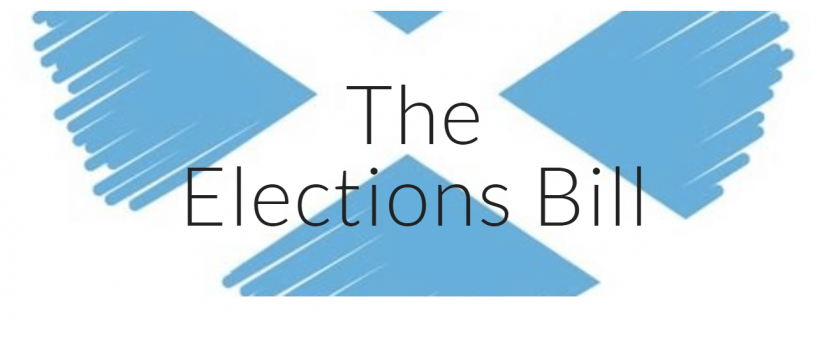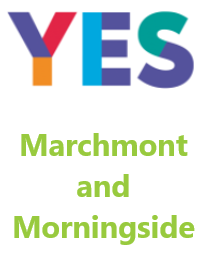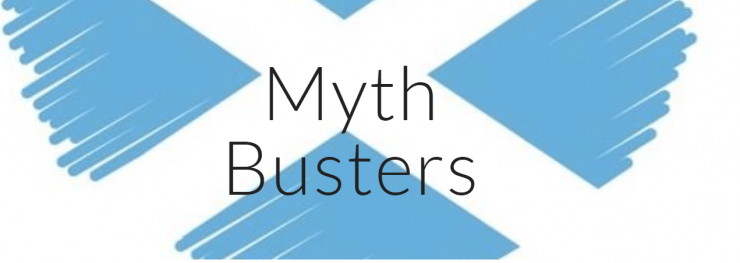
'A Solution Looking For A Problem'
The Elections Bill takes its place alongside a raft of recent legislation which diminishes democracy
In the first week of September 2021, while the media's and the public's attention was focussed on the Tories breaking their 2019 election manifesto pledge not to increase National Insurance contributions, the same Tories bulldozed through the UK Parliament the Second Reading of the Elections Bill. Anybody who values democracy should be concerned about this.
The best known part of this Bill is the requirement in future elections for voters to produce some form of ID before they are allowed to vote. The justification given for this is a claim that there are abuses taking place by people impersonating somebody else and using their vote. In recent years there have been only three people convicted of doing this which has prompted the suggestion that this can only be 'a solution looking for a problem' and is therefore unnecessary.
It is well known that in past Northern Ireland elections the maxim 'Vote early, and vote often' had some validity and it seems that the Northern Ireland experience contributed to this bill being put forward. If there is any concern about voter fraud in UK elections it stems from allegations about postal votes.
For quite some time in the USA there have been rules which make it difficult both to register and to vote. In Republican states these have been directed at blacks and poorer people who traditionally were more likely to support the Democrats. Going back even further there were the notorious Jim Crow laws which discriminated against blacks and were designed to 'keep them in their (subordinate) place'.
Critics of the Elections Bill say similar motives lie behind it and that it will effectively disenfranchise up to 2 million people who will find it difficult to get the necessary ID. These will include many of the disabled, the poor and some of the elderly, the BAME and Traveller communities; people who are less likely to support the Tories. When voter ID was trialled in Bristol this is exactly what happened. Operating this unnecessary scheme will cost £120m over the next decade.
It is likely to have a particular impact in Scotland because in no other election in Scotland are you required to have voter ID. If you do not have a passport or a driving licence you will only be able to vote if you apply to your local council for the special polling card. You will have to collect the card in person; it cannot be sent out to you. Bear in mind the size of Highland Council's area which is bigger than Belgium.
The Electoral Commission (EC), the currently independent body which is supposed to see that elections are conducted fairly, shares the concern about voters being disenfranchised and has presented a petition with 300,000 signatures asking the government to drop the plan. The EC's reputation was badly dented over the Brexit referendum because it made a poor job of looking into not just the overspend by the Leave campaign but also the sources of their money so it needs to be seen to be effective in scrutinising changes to electoral rules.
The EC must also be concerned about other proposals in the Bill which many think are at least as worrying as the potential to disenfranchise some voters for party advantage. At present the EC is accountable to a parliamentary committee directed by the Speaker but in future it will be put directly under the control of the government because it will have a majority of government MPs. That adds to the belief that the whole exercise is designed to serve the interests of this government rather than democracy.
There have been several elections now in which concerns have been raised about the role of 'dark money' in helping the Tories. Dark money means funds from unknown sources which are intended to influence our politics. The money gets into the political system in a variety of ways such as loopholes in election law and online campaign fundraising, from anonymously funded, agenda setting pressure groups and think tanks and from unidentifiable, probably foreign, sources through shell companies. The Bill has nothing to say about these.
In July 2021 the Committee on Standards in Public Life issued a report in which they put forward 47 recommendations on improving the way donations and spending can be regulated, reported and enforced. They include: donors must be on the UK electoral register; better checks to identify the original source of funds paid through shell companies. Not one of these recommendations has been included in the Bill. So the requirement for voters to produce ID which has been deemed quite unnecessary looks like going ahead but proposals to clean up dubious money contributed for electioneering purposes will be ignored.
The Elections Bill needs to be seen against the background of other legislation passed by the UK Government which cumulatively have been described as attacks on our democracy and our human rights.
The Covert Human Intelligence Sources (CHIS) Act allows not just the security services (who have always been doing this sort of thing) but also the police and even HMRC, the food standards agency and the environment agency to take actions "which would otherwise constitute a criminal offence". (including murder, torture and sexual violence) Amnesty International described it as "hugely worrying". The Tories say anyone who feels adversely affected can take action against the state under the Human Rights Act but this is not true. In a recent court case government lawyers argued that the HRA does not apply to crimes committed by CHIS because "the state, in tasking the CHIS... is not the instigator of that activity and cannot be treated as responsible for it."
The Police, Crime, Sentencing and Courts Bill has now passed all stages in the Commons and is passing through the Lords. It applies to England and Wales but has some impact on Scotland too. A separate bill has now been introduced for Scotland but it is not yet known if it will prove as controversial. The E & W Bill is partly a reaction to the Extinction Rebellion protests which caused disruption in 2019. The concern about it stems from the extra powers it gives the police to deal with public order and allows for increased sentences for breaching conditions imposed on assemblies and processions by the police. All movements wanting change are likely to involve an element of peaceful protest but the police can stop protests if they deem them to be likely to cause "serious unease" or "serious annoyance" including making too much noise. The right to protest is an important feature of any democracy. People tend to protest publicly when they feel those in power are doing something wrong or if they feel they are not being listened to. Once again critics believe this legislation diminishes democracy.
The Internal Market Act was claimed by the UK Government to be needed in order to standardise trade and regulations throughout the UK post Brexit. This was despite it being pointed out that it was not being hampered by different legislation in different parts of the UK (e.g. minimum pricing for alcohol). The London Government also decided unilaterally to retain powers being returned from Brussels even on some devolved matters. This has been labelled 'the power grab' and its effect is to undermine devolution by centralising control. If a trade deal is struck with another country as has happened with Australia or may happen with the USA its terms will apply throughout the UK even if the devolved governments object to it on the grounds that it will affect them adversely.
No wonder the Council of Europe describes the UK as 'a primitive democracy' and currently only admits it as a member thanks to the devolution that has taken place.

